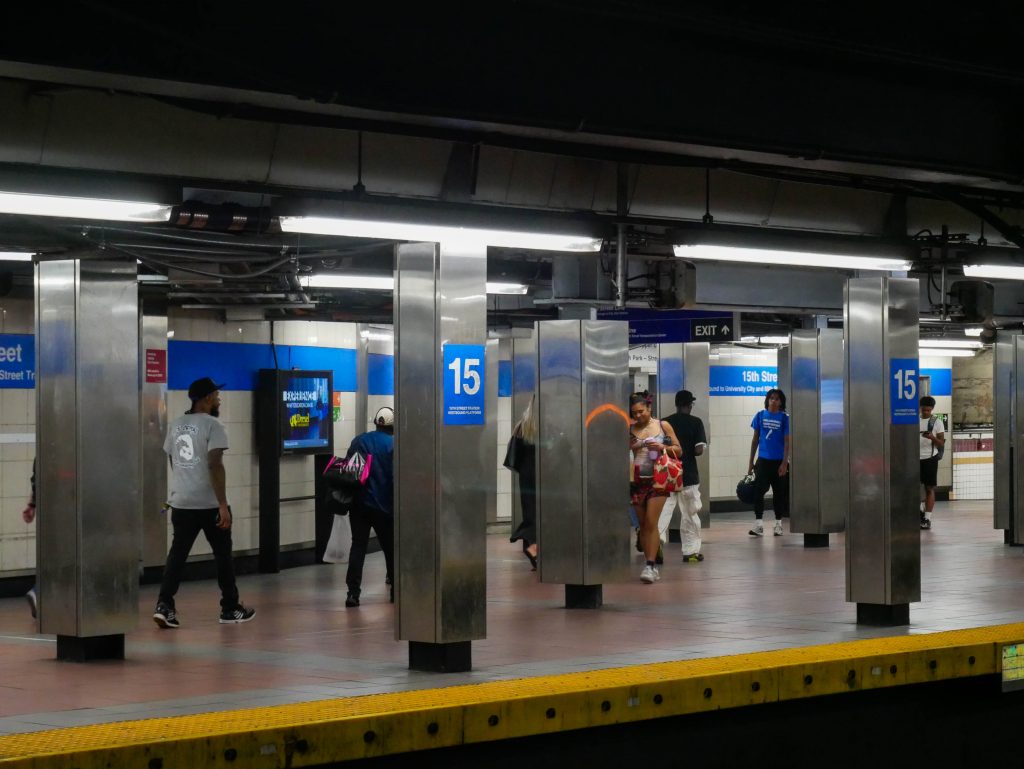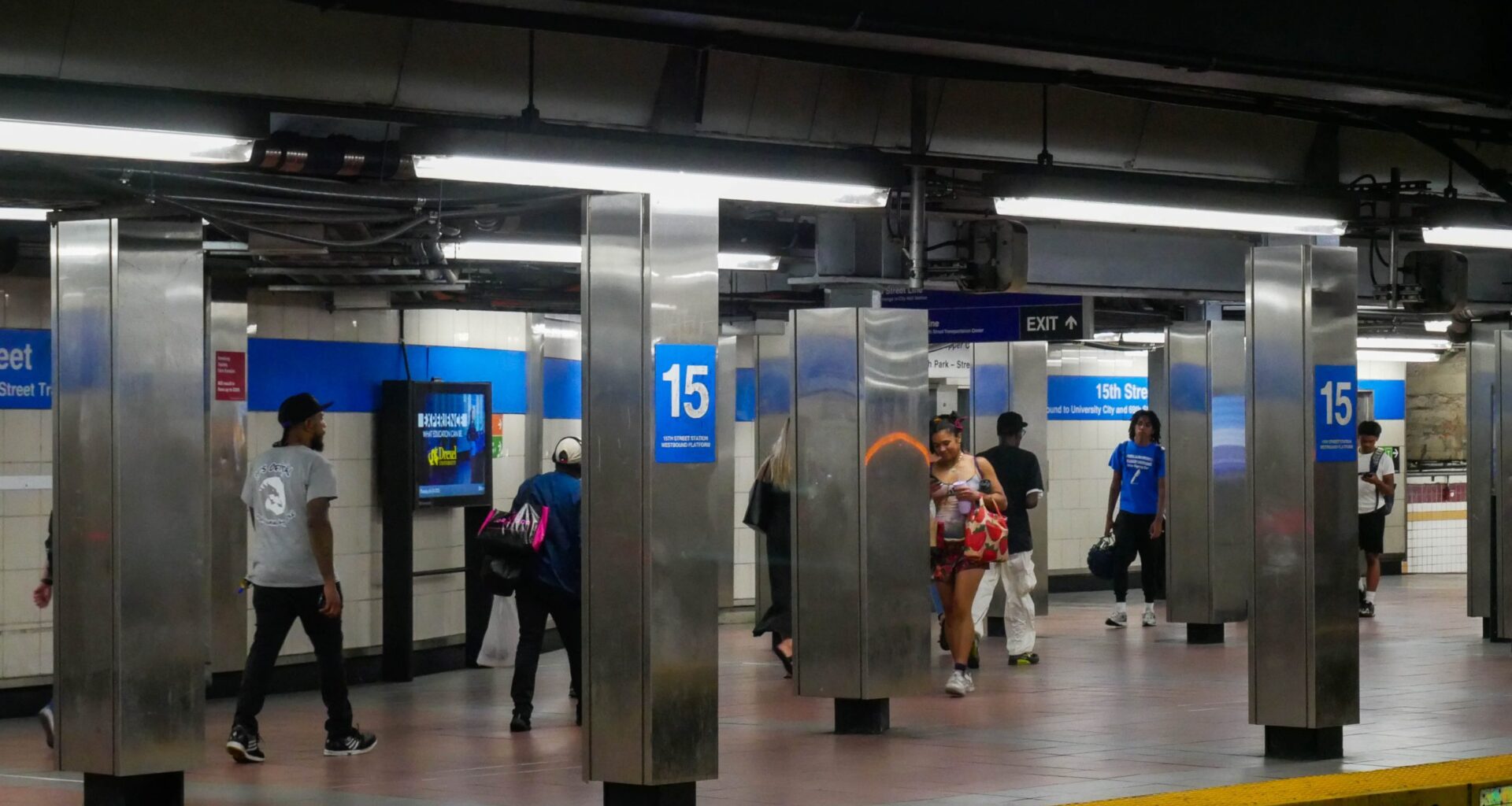 Photo by Lucas Tusinean | The Triangle
Photo by Lucas Tusinean | The Triangle
It is often said that college provides the best years for personal growth, defined by friendships, success in your professional and personal goals, and consequently discovering yourself through new experiences. But for commuters, students who lose a chunk of their day to traveling, life at college can feel like an uphill battle. Your routine is disrupted by either racing to make the train, only for it to be delayed or canceled, or scrambling to beat the Schuylkill traffic. Those egregiously long commuting times could be better spent on club meetings, group study sessions, or unwinding with friends. Never mind the “FOMO” that arises and the constant questioning of whether you really belong at Drexel University.
My personal experience as a commuter has been met with these challenges. Two weeks ago, repeated ten-minute delays by the Southeastern Pennsylvania Transportation Authority caused me to miss a class I was looking forward to attending. After frequently experiencing the same delays the previous day, I became frustrated – SEPTA trains were not the only ones with built-up steam. By the second ten-minute delay, I held out hope that I would make it to class on time. However, I arrived at class fifteen minutes before it ended, totaling my commute to two hours and 30 minutes. Luckily, my professor was understanding, but some students are not so lucky. Missing a lab, a mandatory class, or an exam is harder to come back from and is rarely warmly received.
Commuting, however, has benefits worth addressing. Tuition does not include on-campus housing, and there are many opportunities to grow outside of Drexel. Living at home gives you comfort and time-management skills, and above all, invaluable time with family.
Although there are real benefits to commuting, the idealistic coming-of-age narrative of college seems to lie on more dubious grounds when you include commuter students in the equation. Therefore, I urge us to bring awareness of the delays and canceled trains disrupting commuters’ schedules, thus creating a loss of valuable and memorable experiences at Drexel.
So what can we do about this? First, we can understand what is going on with SEPTA, and what we can do about it.
The Pennsylvania Senate resolution for funding SEPTA to continue operation is simply moving money around. Specifically, the Governor approved SEPTA to pull money required from the capital Public Transportation Trust Fund, which is used for capital expenditure projects like new train cars, construction, lease payments, and other major projects. This is an ineffective attempt at fixing today’s crisis by recklessly opening Pandora’s box to deal with tomorrow. By diverting money and postponing investments, there will be a backlog of growing maintenance for new buses, trains, and upgrades, which will accumulate until the two years of funding are exhausted. We commuter students have been inconvenienced enough and now must grapple with the lack of serious and sustainable solutions from our representatives.
Most Philadelphia legislators support increasing funding in the long term, but the state Senate refused to consider the state House’s bill to raise the share of sales-tax revenue allocated to transit. Without an agreement, the Governor’s approval for the short-term plan for allocation of money from the capital funds was the only feasible option. “Saving” SEPTA looks great for political re-election, so hastily implementing a funding plan that coincidentally lasts through the next election cycle tells a heroic story of success for some of the state senate. Political posturing, however, does not meet the current moment, and frankly, too many politicians do not. Bear in mind, some of our politicians argue there is plenty of money in the transportation trust fund for capital expenditures projects, and those same politicians insist low funds are nothing new under the sun for SEPTA.
These stances clearly signal to the public a lack of seriousness and urgency from our politicians for our commuters’ time. Despite this rhetoric, SEPTA consistently places Philadelphia in every top ten list of transit cities in North America. For all its shortcomings, such as swelling the cost of Key Cards past its budget, SEPTA is not our representatives’ problem child; it is a necessity that must be seriously improved for the deserved standard of living of our commuting members of Drexel and the greater Philadelphia area.
Both the deadlock over the source of funding, as well as buying two years of time to avoid passing a new funding bill feels appropriate with the public’s perception of politics; however, that is precisely why I oppose nihilism in these times. While the unilateral approval of capital assistance funds may delay projects and real improvement for SEPTA riders, we commuters still have our voice. I strongly ask that we call or message the Senate members who are blocking long-term proposals and our leadership who went forth with a short-term fix, and demand an established legislative commitment to increase revenue in a specific timeframe. We have to show support for not only our Philly representatives, but also the greater Pennsylvanian representatives already proposing increased funding. Commuters are not powerless to demand that our politicians stop playing politics and start writing policy.
It has become common today to dismiss local politics, but many may not be aware of its rippling impact on Drexel’s community. Commuters exist in a shaky reality of uncertainty, and our academic goals are at risk. When the train’s operations are slow, we are confronted with a spiral of lateness and unequal access to Drexel’s opportunities. Geography should not be a barrier to education at Drexel for students living in or near Philadelphia. By being aware of our obstacles, we can organize and call our representatives to showcase our passion for dismantling the status quo of short-term solutions. What I urge we all advocate for is simple: The Pennsylvania Senate must allow a transit funding bill that is long-term to reach the floor. To show commuters care and deserve equal education, we must speak to our representatives online or at public hearings, and organize to voice our concerns about a lack of a long-term plan for city transit. Drexel should play a role of support for our commuter students, professors, and staff affected by SEPTA cuts by recording the obstacles we face, and by using their institutional power to advocate for a system that their students rely on. This is not a fight about transit, but about equitable access to education.

